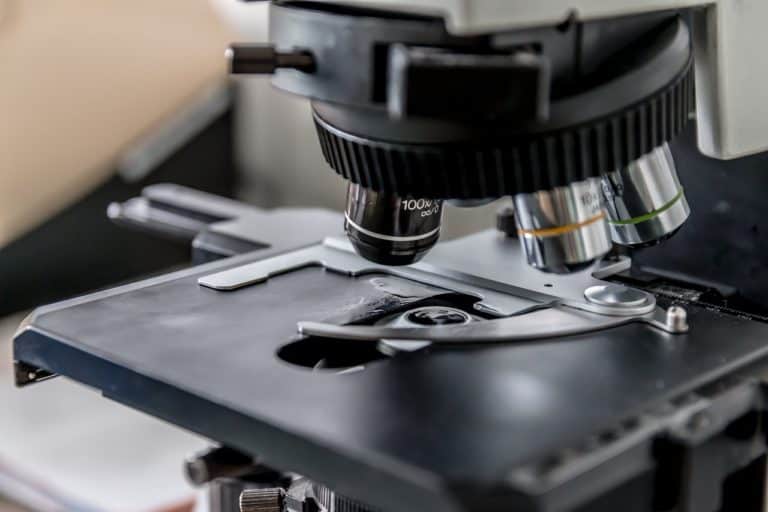Treatment of BPH, or treatment for benign prostatic hyperplasia (an enlarged prostate), often includes drugs and medical procedures. However, a new review has cast a focus on diet and supplements for BPH treatment as a way to reduce lower urinary tract symptoms (LUTS) associated with the disease. This article provides an opportunity to not only explore the review’s findings but also to examine diet and supplement suggestions for BPH treatment and prevention.
New BPH treatment review
The new BPH treatment review, authored by Dr. Geovanni Espinosa, director of the Integrative Urological Center, New York University Langone Medical Center, emphasizes the role of nutrition in BPH. Espinosa explains that dietary changes and supplements can be used as the main approach or along with drugs for BPH or procedures to relieve symptoms in men with BPH and LUTS.
Here’s a brief overview of the findings based on an evaluation of numerous research studies:
- Animal protein is more strongly associated with BPH symptoms than is plant protein. Therefore, men are encouraged to chose all or most of their protein choices from plants (e.g., beans, lentils, fermented soy, quinoa) and a lesser amount from cold-water fish such as salmon and herring.
- Vegetables can help prevent BPH. Men who participated in the Prostate Cancer Prevention Trial had a significantly lower risk of BPH if they ate at least four servings of vegetables per day when compared with men who ate less than one serving daily.
- Combining a plant-based diet with exercise provides added protection. A study in The Physician and Sportsmedicine reported that daily aerobic exercise, combined with a low-fat, high-fiber diet rich in plant foods can reduce risk factors for BPH.
- It’s best to stay away from starches, especially white bread, white pasta, and white rice. A study of more than 1,300 men with BPH compared with controls found a direct relationship between eating starches and BPH. Eating starches may also lead to an increase in glycemic factors believed to stimulate the development of BPH.
BPH treatment and supplements
A number of natural nutritional and herbal supplements have been studied as BPH treatment options. Here is a summary of some of those supplements and their benefits.
- Beta-sitosterol: This cholesterol-like substance may help relieve BPH symptoms. A review of more than 500 men with BPH and use of beta-sitosterol found that beta-sitosterol improved urinary symptoms. (Wilt 1999)
- Cernilton (pollen extract): Cernilton is an extract from rye grass pollen and a supplement that has proved helpful in improving BPH symptoms. One study showed that more than three-quarters of men with BPH who took cernilton experienced a significant improvement in BPH symptoms. (Dutkiewicz 1996)
- Cranberry: The phytonutrients in cranberry help prevent the development of urinary tract infections. This benefit may make cranberry useful in BPH treatment.
- Curcumin: The spice turmeric is the source of the compound curcumin. This powerful antioxidant has been shown to reduce pro-inflammatory factors, which in turn relieves inflammation. (Zhang 2010)
- Diindolylmethane (DIM): At least one research study has suggested that BPH symptoms in older men may respond to supplementation with DIM. (Zeligs)
- Green tea: Potent antioxidants called catechins found in green tea, and especially epigallocatechin-3-gallate (EGCG), have been shown to help with BPH treatment, boost the immune system, and destroy bacteria and viruses. Catechins also appear to reduce levels of dihydrotestosterone (DHT), a hormone that promotes development of BPH.
- Pygeum: An herbal extract from the Prunus Africana tree has been shown to relieve BPH symptoms “modestly but significantly.” (Ishani 2000)
- Quercetin: This phytonutrient is a potent antioxidant and anti-inflammatory found in red grapes, onions, and other foods. A combination of quercetin and finasteride (a drug used to treat BPH) resulted in a significant reduction (up to nearly 50%) in prostate weight. (Ma 2004)
- Saw palmetto: The saw palmetto prostate relationship is one that has attracted a great amount of interest because the herb has been used for centuries for prostate problems. One recent finding, for example, noted that saw palmetto extract was effective in inhibiting an enzyme that is associated with BPH. (Pais 2010)
- Stinging nettle: This herb has both anti-inflammatory and diuretic actions. In a study of 620 men with BPH, 81% of the men who took stinging nettle said their symptoms improved, while only 16% of men who took placebo could make that claim. (Safarinejad 2005)
- Vitamin D: Low levels of this important vitamin have been associated with a greater risk of BPH. Thus one BPH treatment approach may be to ensure men get enough vitamin D.
- Zinc: The ability of zinc to relieve LUTS is believed to be associated with its activity to inhibit an enzyme and/or a hormone associated with the development of BPH. An Oregon State University study indicated that zinc may play a critical role in cell suicide and regulation of cell growth in BPH cells. (Yan 2010) Too much zinc (more than 100 mg daily), however, may increase the risk of aggressive prostate cancer.
Men who are experiencing BPH symptoms or who want to help prevent development of an enlarged prostate can choose a natural approach to BPH treatment. Both diet and natural supplements can provide a safe and effective way to avoid or complement BPH treatment from conventional medical options.
References
Barnard RJ, Aronson WJ. Benign prostatic hyperplasia: does lifestyle play a role? The Physician and Sportsmedicine 2009 Dec; 37(4): 141-46
Dutkiewicz S. Usefulness of cernilton in the treatment of benign prostatic hyperplasia. Int Urol Nephrol 1996; 28(1): 49-53
Espinosa G. Nutrition and benign prostatic hyperplasia. Current Opinions in Urology 2013 Jan; 23(1): 38-41
Ishani A et al. Pygeum africanum for the treatment of patients with benign prostatic hyperplasia: a systematic review and quantitative meta-analysis. American Journal of Medicine 2000 Dec 1; 109(8): 654-64
Ma Z et al. Reduction of rat prostate weight by combined quercetin-finasteride treatment is associated with cell cycle deregulation. J Endocrinol 2004 Jun; 181(3): 493-507
Pais P. Potency of a novel saw palmetto ethanol extract, SPET-05, for inhibition of 5 alpha reductase II. Adv Ther 2010 Aug; 27(8): 555-63
Safarinejad MR. Urtica dioica for treatment of benign prostatic hyperplasia: a prospective, randomized, double-blind, placebo-controlled, crossover study. J Herb Pharmacother 2005; 5(4):1-11.
Wilt TJ et al. Beta-sitosterol for the treatment of benign prostatic hyperplasia: systematic review. BJU Int 1999 Jun; 83(9): 976-83
Yan M et al. Differential response to zinc-induced apoptosis in benign prostate hyperplasia and prostate cancer cells. J Nutr Biochem 2010 Aug; 21(8): 687-94
Zhang QY et al. Reducing effect of curcumin on expressions of TNF-alpha, IL-6 and IL-8 in rats with chronic nonbacterial prostatitis. Zhonghua Nan Ke Xue 2010 Jan; 16(1): 84-88







